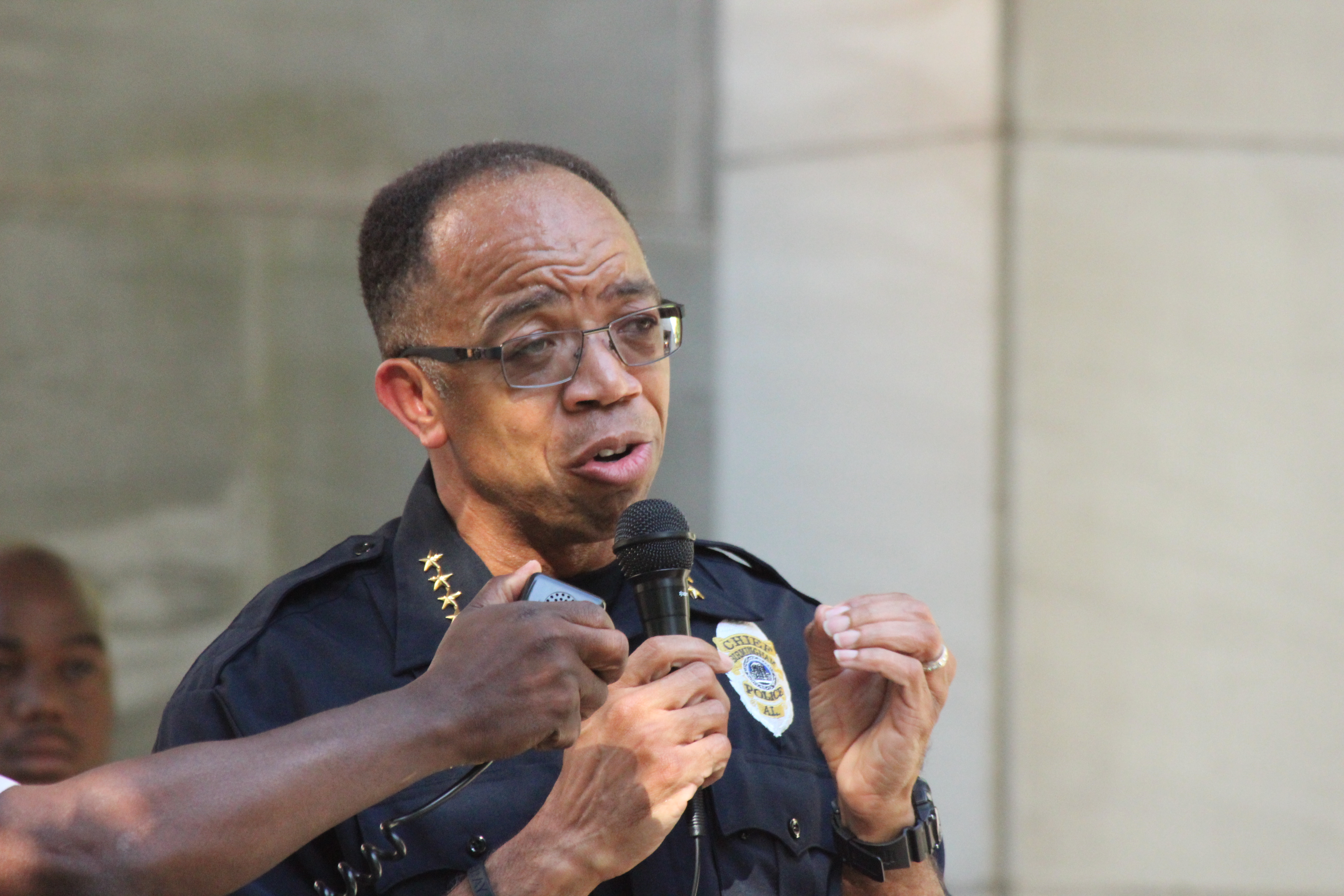

By Solomon Crenshaw Jr.
For the Birmingham Times
Birmingham Police Chief A.C. Roper identifies with families who lose a loved one to violence.
The chief’s brother was murdered in Birmingham while holding his infant son during a 1992 robbery attempt.
“My wife’s brother also was murdered in Birmingham,” he told The Birmingham News in 2010. “I don’t know many cities where the chief and the chief’s wife have both lost siblings to murder in that city.”
The number of homicides in Birmingham has increased 80 percent over the past three years and is on track this year to surpass triple digits in the city for the first time since 2006. According to official Birmingham Police Department statistics, there were 92 homicides in the city in 2016, up from 51 in 2014.
Many in the community, including law-enforcement officials, are concerned.
“We’re taking a survey across the city and we’re looking at locations like drug houses and places where we are getting repeated complaints and calls for service regarding gunshots and we’re zeroing in on it,” Roper told ABC 33/40’s Pam Huff in a February interview. “. . . we’re trying to save the lives of our young people and we’re going to work hard at it every day.
Lt. Sean Edwards, public information officer for Birmingham Police Department, said there are too many guns on the street.
“A lot of people are starting to handle their disagreements and confrontations with firearms,” he said. “Too many firearms are entering verbal conversations or even disagreements that really should end with people walking away from each other.”
Some homicides have accompanied robberies, but three factors are often at play when homicides increase, said Edwards: “People, places, and behaviors.”
“If you’re hanging out with the kind of people who are involved in activities that can be detrimental to your life, homicides are going to increase based on the activities you’re involved in or the locations where you’re hanging out,” he said.
Still, there is no formula to provide a definitive reason, said Edwards.
“We can get around a table and discuss urban shootings. We can go from broken homes to a lack of education to a lack of employment to poverty-stricken areas. We can go on and on and on.
“If people would stop hurting each other, that would change the game,” Edwards said.
Roper said the community also must be part of change.
“And if there are community groups out there that would like to join with us we welcome the support because we can’t do it alone,” Roper said in the ABC 33/40 interview. “If you are involved in mentoring, social services, or can help strengthen families . . . because the family is the first school” contact the police department.
“We are in a race against time trying to save the lives of our young people,” he said. “Because of these social economic factors, because we have family issues, we have poverty, and unemployment and all these other socio-economic issues that affect crime . . . the police can’t be the answer alone.”




